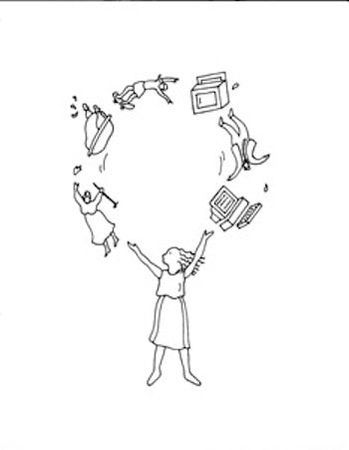|
One of my patients recently complained. I asked her what her doctor said. She told me she had forgotten to tell her doctor. She told me that she had become used to the problem and “accepted” it. Many senior-related articles advise writing down symptoms and questions before visiting the doctor. Good advice; as far as it goes. It’s the stuff that falls off the radar that could be the most important. The doctor needs information from the patient or the patient’s advocate. That information is the basis to decide which questions/tests to pursue.
What kind of information doesn’t get to the doctor?
0 Comments
Senior depression presents several problems. It appears as “mild” even if it doesn’t affect seniors mildly. Depression symptoms may surface as physical complaints. Seniors grew up in an era when receiving mental help = CRAZY. Each of those problems presents a barrier to treatment. How does a caregiving adult child get a senior to accept the help they need? They really need it. Even though seniors account for 13% of our population, they comprise 18% of all completed suicides! Our society must take senior depression seriously. Medication may not be enough. Religion/spirituality (R/S) may be a treatment pathway that seniors can accept.
Religious and Spiritual Factors in Depression: Review and Integration of Research is a review of literature: a look at 444 research articles on the subject of R/S. All studies were reviewed for their methods. 178 studies were found to be rigorously designed and their data analyzed. Most studies found that seniors who a religious or spiritual practice did better at managing depression or facilitating its resolution. The review found that R/S beliefs may be used to cope/adapt to stressful life circumstances. Seniors certainly face those; life-changing illness, loss of career, loss of home, and loss of spouse/friends. Their lives need ways to adapt. A second part of this study, found a lower likelihood of mood or psychiatric disorder for those who regularly attended religious services. There was one caveat; if the R/S tradition was very orthodox, the senior may feel more judged than supported by their R/S tradition. You know your senior. You know what type of R/S practice they hold. If there is a supportive faith community; try it. This same review of literature noted that “pastoral counselors spend 140 million hours (doing) therapy each year”. That’s more hours than provided by the American Psychological Association! Since it is part of the counseling media, ask for this help for your senior. Does it help? The greatest medicine is no good if your senior won’t take it. The same applies to counseling. If it’s socially acceptable to meet with the pastor; use that method. Health and Spirituality, examined the relationship between health and spirituality. Researchers found that the modern, western era’s response to illness/depression was a departure from other cultures and most of history. In other times, religion was considered an integral part of healthcare. Major illnesses focus the patient’s attention on ultimate meaning, purpose and transcendence. The Nurses’ Study found that women who attended weekly religious services had a lower mortality rate that those who never did. Regular religious attendance was associated with a lower rate of depression. Wow! Does our society need to return to an integrated/ whole person strategy to effectively treat seniors? I believe we should. Have we become too quick to provide pills to our seniors? The Center for Medicare and Medicaid (CMS) has a “rule of 4”. If the senior is taking more than 4 kinds of pills, their risk of medication conflicts and issues increases. While medicine might be helpful, other strategies could make a difference without raising further medication conflicts. How many pills is your senior taking? Is it a constant battle to get them to take medicine? I suggest you discuss the idea of trying regular religious attendance and pastoral counseling instead. As you discuss this method with the doctor, please keep this study result in mind. One study gave cancer patients and their doctors a list of 7 factors to rank when making medical decisions. The patients ranked faith in God 2nd. The physicians placed it last. Thus, it is the adult child/caregiver who must advocate for alternative approaches. Always discuss changes with the doctor. Try adding God; He just might help your senior. |
Author "A Senior Moment" is written by Ms. Sara Lieber, owner of Senior Sidekicks. Ms. Lieber has over 30 years of experience in senior care. Archives
March 2024
Categories
All
|



 RSS Feed
RSS Feed